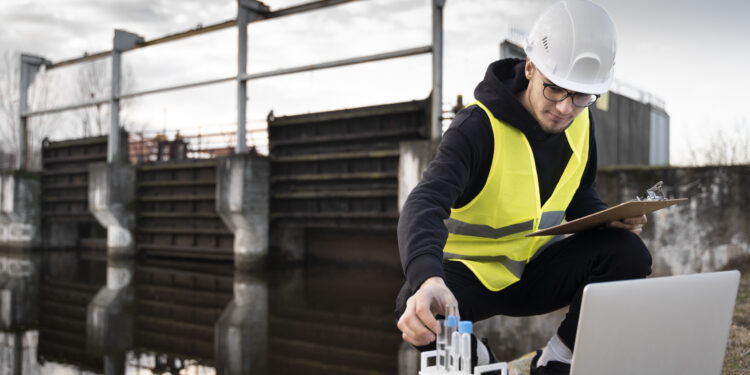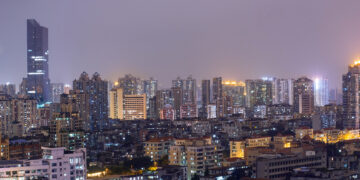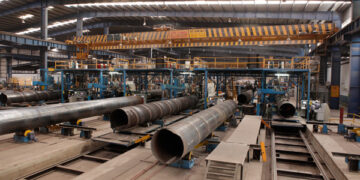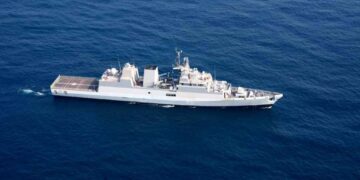VA TECH WABAG LTD
Know the Company
VA Tech Wabag Limited (Wabag) is an Indian multinational company, headquartered in Chennai, offering water treatment and water management solutions, with a legacy of 100 years. Wabag excels in providing sustainable and innovative solutions for water treatment to industrial and municipal clients spans across four continents: with a primary focus on desalination, water recycling and reuse, wastewater treatment, as well as comprehensive water management solutions. The Company has dedicated R&D centers in Europe and India, as well as collaborating with prominent technical institutes globally. Through these initiatives, the company has successfully built an outstanding product portfolio and industry expertise.
Strength
Wabag has a rich history dating back to 1924 having extensive experience in the water treatment segment. Over the years, its status and developments have undergone significant evolution, supported by numerous mergers and acquisitions. This transformation enables the Company as a pivotal player in the water infrastructure sector, with worldwide presence.
Wabag is a global leader specializing in the design, construction, and operational management of water solutions. It offers a comprehensive range of solutions, including water and wastewater treatment, desalination, water reuse, and industrial waste water treatment. It has a strong global presence, with projects and operations successfully executed in Asia, the Middle East, Africa, Europe, and the Americas.
As a leading global water technology company, WABAG takes the forefront in the industry, supported by a robust research and development team dedicated to maximizing growth opportunities. With multi-geographical teams and an extensive intellectual property portfolio, featuring over 125 patent rights, the company is well-positioned to provide innovative solutions for building sustainable water infrastructure.
Wabag has always been a frontrunner in terms of innovation and implementing advanced technologies in its field. Recently, the company has partnered with Pani Energy Ltd (Pani) to integrate applied artificial intelligence (AI) into water treatment plants. The emerging field of digital technology, termed Operational Intelligence (OI), is implemented through their product, Pani ZED™, in plant operations. The partnership between VA Tech Wabag and Pani seeks to leverage Pani’s platform to optimize Operational Expenditure in water treatment plants. The primary focus is on achieving reductions in downtime, energy consumption, and chemical usage. Furthermore, it is expected to expedite crucial decision-making processes and enhance the longevity of essential equipment.
Financial Advancements
Wabag’s Q3FY24 consolidated net profit up 35% to Rs 63 crore from Rs 47 crore a year ago. Revenue from operations for this period increased to Rs 704 crore from Rs 651 crore. Its consolidated EBITDA stood at Rs.99 crores maintaining a double-digit EBITDA margin.
For the 9-month period, consolidated operating revenue stood at Rs.1,922 crores, the consolidated EBITDA improved to Rs.261 crores with a healthy margin driven by execution efficiencies and reduction in cost of operations. The 9months net profit stood at Rs.173 crores on a consolidated basis, up by 40%, YoY.
Robust Order Book
Wabag has consistently prioritized the Middle East and Africa cluster as a key growth engine. Recently, the company successfully secured a project for 20 million liters per day industrial wastewater treatment plant at the Ras Tanura refinery complex in the Kingdom of Saudi Arabia. Recognizing the significant potential in the MEA cluster, Wabag remains committed to actively pursuing opportunities in this region in the future. The Company has secured 59% of its order inflow in this fiscal from international geographies, all of which were won against strong international competition.
The Company’s recent orders are backed by payment guarantees, including Multilateral, Sovereign-Funded, Federal Government supported, or Letter of Credit (LC) backing. This choice instills complete confidence for the company regarding the certainty of collecting payments for these projects. The order intake for Q3FY24 was Rs 1,762 crore, and as of now, the Company has an order book totaling Rs 11,900 crore, which is giving it a revenue visibility of almost 3 years. The orders have a healthy mix of 57% EPC and 43% O&M. Further, its strong order book and pipeline visibility instills confidence in its ability to continue to grow and generate immense value, going forward.
Credit Rating Improvement
Due to Wabag’s ongoing endeavors to enhance margins, manage cash flow efficiently, reduce debt and achieve overall business advancement, its credit rating has recently been upgraded to “A+” with a positive outlook on a long-term basis. Simultaneously, the short-term rating remains at the highest level, “A1+.” This reflects the company’s solid financial performance and positive prospects for long-term stability and growth.
Over the last 25 years, the company has consistently demonstrated growth solely from internal accruals, means, without seeking external funds, other than debts. The Company’s borrowing as of September, 2023 stood at Rs 283 crore while its cash and cash equivalent stood at over Rs 300 crore. The Company’s return on capital employed also remains strong at around 20%, reflecting its asset-light and technology-focused approach.
Opportunities
Water stands as a fundamental element essential for existence of life. It is now crucial to recognize that water is an invaluable resource, as it is estimated that below 0.4% of the water on the planet is usable by humans. The rapid pace of industrialization and urbanization has intensified the demand for clear water for existence and economic advancement. Unfortunately, centuries of water extraction, combined with population growth, have led to a decline in the quantity and quality of both surface and groundwater. Given the current state of water availability, the potential of water treatment segment has grown exponentially. With each passing day, the urgency for water treatment increases, addressing the challenges posed by the current state of water resources.
Water treatment facilities worldwide grapple with aging infrastructure, necessitating upgrades or replacements to ensure efficient and reliable operations. These challenges are further compounded by population growth and urbanization. The increasing global population and rapid urban development contribute to a heightened demand for clean and safe water. This surge in demand places significant strain on existing water resources and treatment infrastructure, underscoring the urgency for modernization and expansion to meet the evolving needs of growing communities.
The scarcity of water plays a vital role in establishing a dependable and safe water supply for communities worldwide and a top priority for any government. The Government of India also launched several projects for water sector, including ‘Namami Gange,’ ‘Jal Jeevan Mission,’ ‘Swachh Bharat,’ and ‘AMRUT.’ These initiatives provide a robust landscape of opportunities for Wabag to expand and thrive in its business.
In India, there is a concerted effort at both the state and national levels to prioritize ‘Recycle and Reuse.’ Notably, five states—Tamil Nadu, Karnataka, Maharashtra, Haryana, and Gujarat—have introduced state-level reuse policies. The objective is to achieve a 70% reuse of treated wastewater by 2030, with the long-term goal of reaching 100% reuse. Additionally, there is an ongoing initiative for desalination, with the Central Government and NITI Aayog developing a roadmap for establishing commercially viable desalination plants along the country’s coastline. This aligns with the national goal of providing clean piped water to every household.
Bright Outlook
The company’s outlook appears promising, particularly in the Middle East and African operations. The government of Saudi Arabia has earmarked $28 billion to bolster new wastewater projects—a sector in which Wabag holds a robust presence. Aligned with Vision 2030, there is substantial interest in wastewater reuse in Saudi Arabia, aiming to recycle 35% of the country’s used water by 2030. This gives significant opportunities for the company in this strategic market.
Egypt is strategically focusing on establishing large-scale desalination plants coupled with renewable energy. The plan includes 21 projects with a total capacity of 3,300 MLD and a substantial investment of $3 billion. In Europe, the European Union is gearing up to revamp contaminant and nutrient removal standards as part of the revision to the Urban Waste Water Treatment Directive (UWWTD). This initiative is expected to result in an annual expenditure of over USD 4 billion by 2040, emphasizing a commitment to improving wastewater treatment standards across the continent ( source- the Company AR).
The company management has indicated that over the next few years, they anticipate a significant increase in the demand for water for semiconductor manufacturing. Another significant opportunity lies in the realm of hydrogen, particularly in the case of green hydrogen. The production of green hydrogen relies heavily on water as a raw material, wherein water is broken down into hydrogen and oxygen through electrodes. Wabag specializes in providing clean water as a crucial raw material for this process. The company recognizes abundant opportunities to fortify its position by collaborating with diverse developers and technology providers as a strategic water partner.
In terms of the bio-CNG segment, the company anticipates imminent developments as it has identified potential plants. It is optimistic about finalizing agreements in the first quarter of the next fiscal year. Typically, the execution of such projects is expected to take approximately 9 to 12 months.
In short, going forward, Wabag will continue to operate as a pure-play water company, concentrating on emerging markets and maintaining an asset-light structure.
Challenges
From the tendering stage to project closure, the company faces numerous challenges, including securing orders through competitive bidding, managing working capital, and addressing issues related to the availability and costs of raw materials.


















